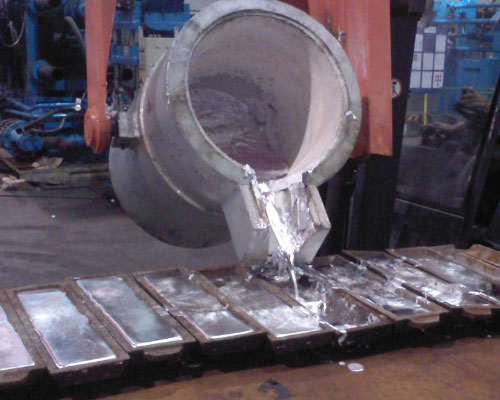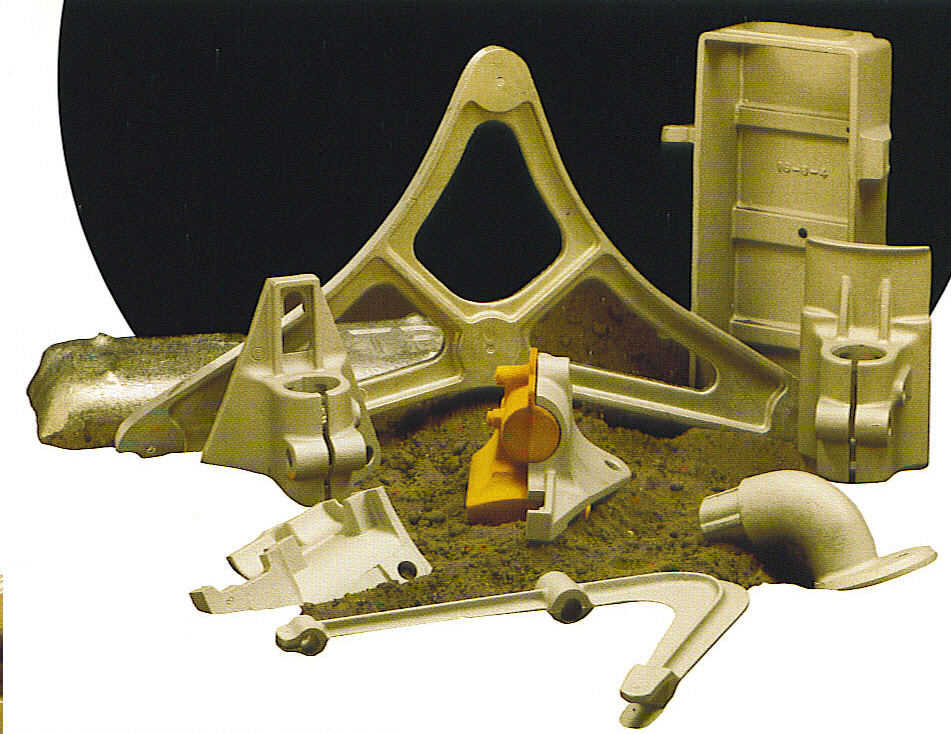How Metal Castings improve durability
Wiki Article
Comprehending the Role of Aluminum Foundry in Creating High-Quality Steel Products
Aluminum factories are crucial in the manufacturing of high-grade metal items. They employ numerous casting techniques, such as sand and die spreading, to achieve precision and durability. With strenuous quality assurance steps in position, these centers assure that their products fulfill market criteria. As industries progress, the role of Aluminum shops remains to adjust. This questions about future technologies and sustainability methods that might redefine their impact.The Aluminum Casting Refine: Strategies and Innovations
The Aluminum casting procedure has actually advanced significantly, integrating numerous strategies and advancements that enhance effectiveness and item quality. Typically, techniques such as sand casting and pass away casting were primary; nonetheless, advancements have introduced processes like financial investment spreading and low-pressure die spreading. These technologies make it possible for makers to accomplish elaborate styles and tighter tolerances, lowering material waste and enhancing overall efficiency.In addition, the assimilation of computer-aided layout (CAD) and simulation software program allows for even more specific modeling and testing, making sure that possible problems are recognized early in the production cycle. Furthermore, developments in alloy solutions cause improved mechanical buildings and deterioration resistance
These growths not just simplify manufacturing but also advertise sustainability by lessening power usage and emissions. As the sector remains to accept new technologies, the Aluminum casting procedure continues to be a vital component in creating high-quality metal products that fulfill diverse market demands.
Applications of Aluminum in Numerous Industries
Aluminum's convenience and favorable buildings make it a beneficial product throughout numerous sectors. In the vehicle field, Aluminum is extensively made use of for its lightweight qualities, adding to improved gas efficiency and efficiency. The aerospace industry additionally benefits, as aluminum's high strength-to-weight proportion improves aircraft style while preserving security criteria.In construction, Aluminum is favored for its toughness and resistance to rust, making it perfect for window frames, roof, and structural elements. The product packaging sector leverages light weight aluminum's non-toxic nature and recyclability, especially in food and beverage containers, making certain safety and security and sustainability.
Additionally, the electric sector uses Aluminum for its excellent conductivity in wiring and transmission lines. The durable goods market uses Aluminum in products ranging from cooking area tools to electronics, emphasizing its flexibility. Aluminum plays a vital function in improving functionality, efficiency, and sustainability throughout varied applications.
Advantages of Utilizing Aluminum Over Other Metals
While numerous metals are used in various applications, Aluminum attracts attention as a result of its distinct combination of properties that offer numerous advantages over other products. Its lightweight nature significantly decreases transport expenses and power intake, making it suitable for industries such as automobile and aerospace. Light weight aluminum's exceptional corrosion resistance boosts sturdiness, prolonging the life of items and minimizing upkeep requirements. Additionally, it displays high thermal and electrical conductivity, making it ideal for electric and thermal management applications.The metal's malleability permits complicated shapes and detailed designs, supplying flexibility in making processes. Aluminum is 100% recyclable without loss of quality, promoting sustainability and reducing environmental influence. These characteristics, integrated with its relatively affordable compared to various other steels, position Aluminum as a preferred choice throughout numerous fields. Generally, the benefits of Aluminum add to its increasing appeal in the production of top notch metal products

Quality Assurance Steps in Aluminum Foundries
Quality control steps play a necessary function in the Aluminum Foundry procedure, guaranteeing that the end products satisfy strenuous market standards and customer expectations. These procedures usually begin with material evaluation, where raw Aluminum is evaluated for pureness and make-up. Once the spreading procedure begins, temperature level control is important; preserving perfect molten metal temperature levels prevents issues such as porosity and contraction.Furthermore, non-destructive testing (NDT) methods, including ultrasonic and radiographic evaluations, are utilized to find interior flaws without damaging the spreadings. Visual assessments are additionally conducted at numerous stages to identify surface area imperfections.
Furthermore, adherence to well-known top quality administration systems, such as ISO standards, is necessary for keeping uniformity and traceability throughout the manufacturing process. Regular audits and worker training on high quality standards add to an overall society of excellence, ensuring that the products not just fulfill yet exceed client expectations in efficiency and resilience.
The Future of Aluminum Foundries: Patterns and Sustainability
As the Aluminum Foundry industry develops, arising fads and an emphasis on sustainability are reshaping its landscape. Boosting need for light-weight and resilient products in fields like vehicle and aerospace drives innovation in Aluminum casting strategies. Advanced technologies, such as expert system and automation, are improving production effectiveness and precision while lowering waste.Sustainability is ending up being an extremely important concern, prompting factories to carry out environment-friendly methods, consisting of recycling Aluminum scrap and using renewable resource sources. The change in the direction of round economy concepts urges foundries to reduce environmental impact while fulfilling customer expectations for lasting items.
Additionally, regulatory stress are pressing the market towards cleaner operations, promoting partnership between producers and environmental organizations. As these trends converge, the future of Aluminum foundries will likely be identified by a dedication to high quality, sustainability, and effectiveness, guaranteeing their importance in a competitive market.
Frequently Asked Inquiries
What Are the Environmental Impacts of Aluminum Foundries?
Aluminum shops contribute to ecological impacts via energy consumption, greenhouse gas emissions, and prospective air and water pollution. Furthermore, mining bauxite for Aluminum can cause habitat damage and soil degradation, influencing local ecological communities.

How Do Shops Ensure Worker Safety And Security During Manufacturing?
Factories implement rigorous safety and security methods, consisting of safety devices, air flow systems, and regular training. They perform risk assessments and keep safety requirements to decrease hazards, making certain a much safer working environment for employees throughout Aluminum Castings the production procedure.What Qualifications Should a Light Weight Aluminum Foundry Have?
A light weight aluminum Foundry should possess certifications such as ISO 9001 for top quality administration, ISO 14001 for ecological management, and OSHA conformity for security requirements. These certifications guarantee adherence to industry laws and commitment to high quality and security methods.Exactly How Does Aluminum Recycling Affect Foundry Procedures?
Aluminum recycling considerably improves Foundry operations by offering an economical basic material source, decreasing energy intake, and decreasing environmental impact - Wisconsin Aluminum Foundry. It also motivates sustainable methods, enabling shops to keep competition in a quickly evolving marketWhat Prevail Defects in Aluminum Castings?
Usual issues in Aluminum spreadings include porosity, shrinkage, incorporations, and surface flaws. These issues can occur from incorrect mold style, insufficient pouring strategies, or contamination during the melting and spreading processes, influencing general product high quality.
Report this wiki page